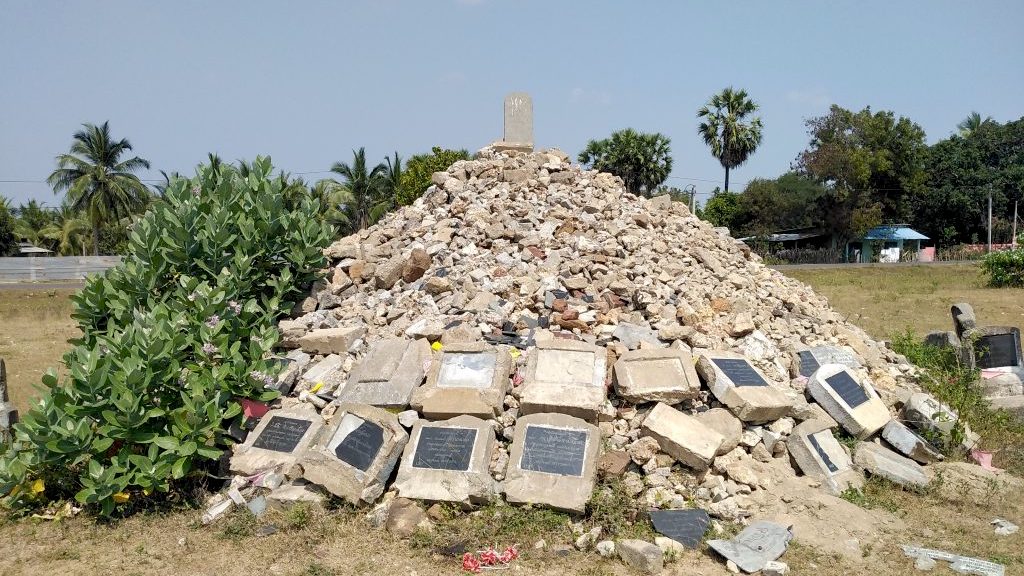Photo courtesy of Arena
I was in Jaffna in July 1983, staying with a few friends of mine at the boy’s hostel of the University of Jaffna. The hostel was situated right by the Kokkuvil train station; a narrow lane called Campus Lane would take you to the Palaly-Jaffna town main road.
A few days before July 23 there was a whisper around that one of the Tamil militant groups had planted a chakkai – a popular code name for various kinds of explosives and landmines on the Palaly-Jaffna road. It was not surprising because we were used to all kinds of whispers, gossip and tips. Mostly they turned out to be a harmless puff in the thin air and wishful thinking.
We heard about the landmines being buried on the road but no one took it seriously.
However, this time the scenario was different. Close to midnight on July 23, Sinhalese soldiers were ambushed and killed by the Tigers. Thirteen of them were killed and one of the senior, most powerful and charismatic Tiger leaders, Chellakkili, was also killed in the attack.
What happened in the South after this ambush is now history and a cause for memorializing and mourning, widely known as Black July. The atrocities committed during the Black July pogrom by Sinhalese goon squads and militarily aided by the state is well documented.
I would like to tell you another side of Black July – almost unknown or perhaps forgotten by history and archives.
In the morning after the ambush, a group of soldiers set off from the Palaly military encampment. No one knew that theirs was a mission of revenge. They arrived at the spot where the ambush took place the previous night and randomly shot eleven civilians including three children. Then they moved on to Jaffna town where I saw them, angry and ready to shoot any Tamil. I was fortunate to hide in the emergency room at the hospital and escaped their wrath. By that evening they had killed 51 Tamil civilians on their way back to the Palaly camp. Several friends and acquaintances of mine were killed on that fateful day of revenge. There are a multitude of literary and poetic records of this genocidal massacre. But sadly, no official records.
The revenge patrol killed my mentor and a well-known human rights activist, Vimalathasan, at Pandattharipu junction in Jaffna. Vimalathasan was riding his bicycle carrying some vegetables in his shoulder bag. The bag was popular among Tamil activists at that time. The bag was handmade and rough but a profound symbol of the Tamil struggle at that time. Vimalathasan’s body could not be retrieved by his family for a long time.
